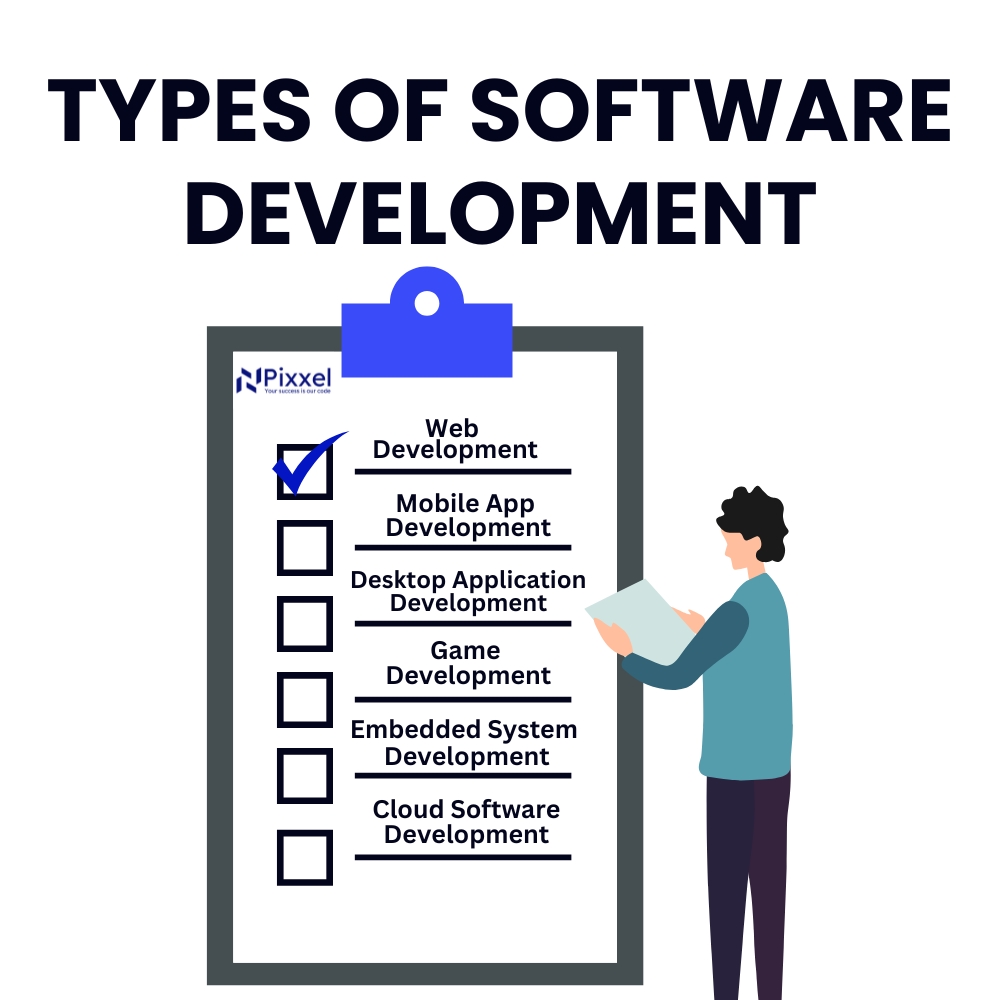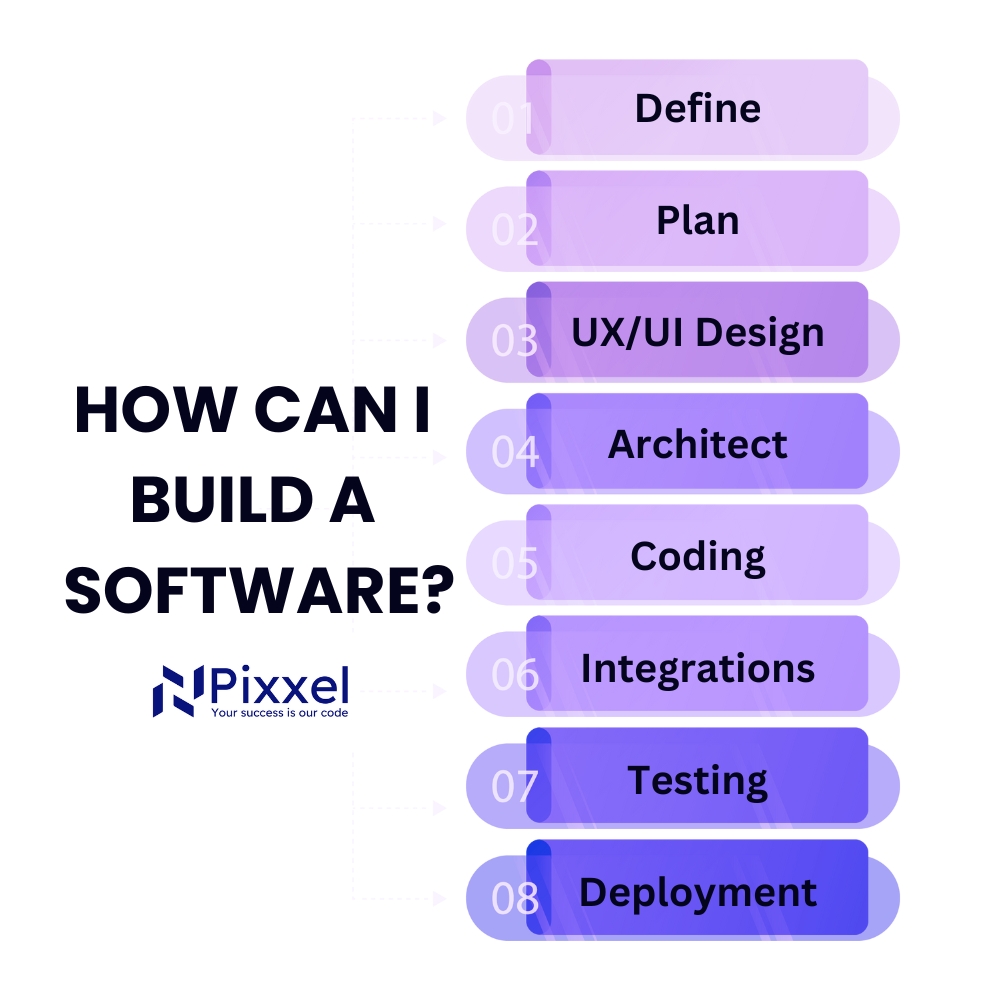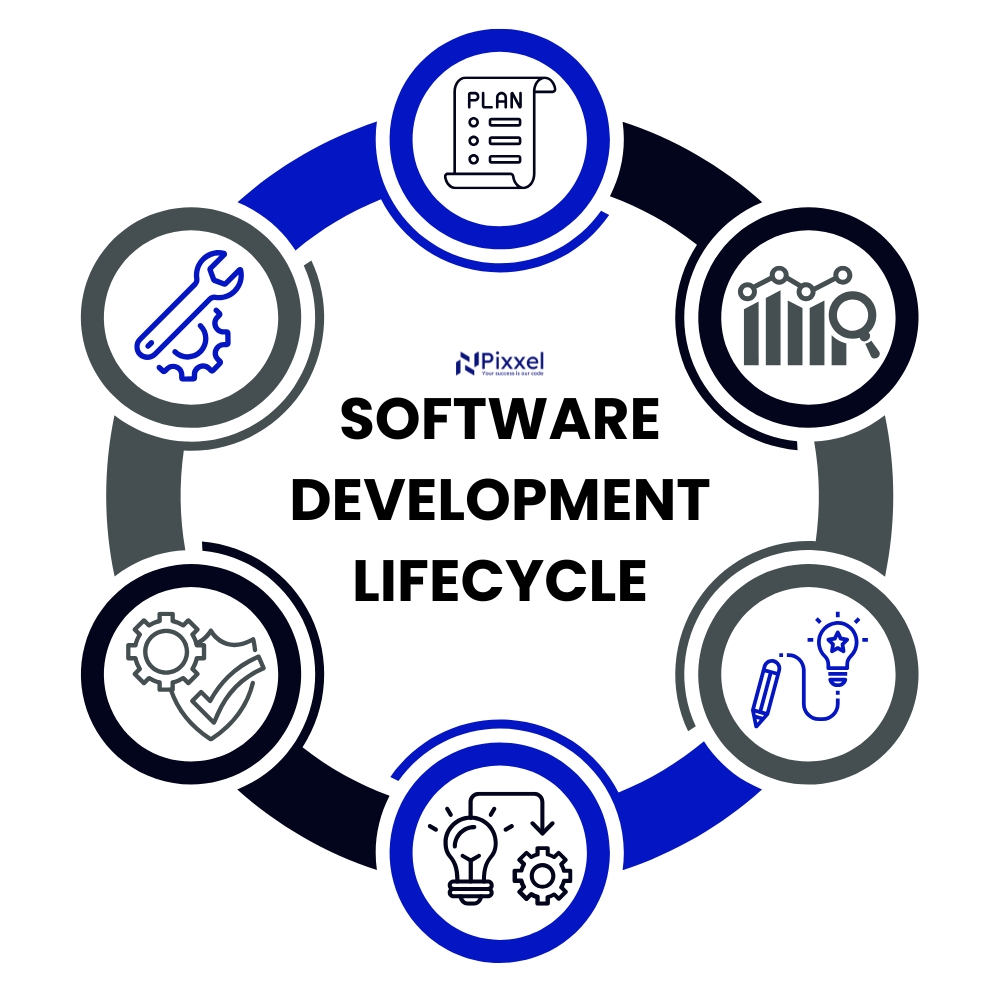The world runs on software, and the types of software development shape how we live, work, and connect. From the apps on your smartphone to the systems driving electric cars, software impacts every corner of our daily lives. Businesses depend on the right software to succeed. A 2023 study revealed that companies investing in software development grow 2.5 times faster than those that don’t. That’s not just a statistic—it’s a game-changer.
But software isn’t one-size-fits-all. Building a website for a startup is vastly different from designing secure systems for a financial institution. Understanding the types of software development is crucial—not just for developers but also for decision-makers. Choosing the right approach can save time, reduce costs, and deliver a solution that fits your needs seamlessly.
We’re here to guide you through this diverse landscape. Whether you’re exploring options for your next project or curious about the latest trends, this article will walk you through the most common types of software development. You’ll discover what they offer, how they’re built, and why they’re essential. Let’s dive in.
Key Takeaways
- Software development includes diverse categories like web, mobile, desktop, and cloud solutions tailored to specific needs.
- Aligning software development with business goals ensures scalability, budget compliance, and long-term success.
- Using the right tools and frameworks enhances efficiency and project outcomes.
- Security and scalability are crucial for protecting data and accommodating future growth.
- Skilled developers significantly influence the quality and success of software projects.
Web Development and Web Application Development
In web development or web development consulting, we focus on creating websites and applications that work on browsers. It is about designing the digital face of businesses and ensuring they function efficiently online.
Frontend Development Tools and Frameworks
Frontend development focuses on everything users see and interact with on a website or application. This includes designing layouts, buttons, forms, and visuals that make platforms user-friendly and engaging.
Our developers use tools like HTML, CSS, and JavaScript to craft interactive and visually appealing designs. Frameworks like React and Angular streamline this process and ensure consistency across projects.
Backend Development Technologies
The backend is the engine that powers websites and applications, handling data storage, server connections, and processing user requests. This unseen layer ensures everything runs smoothly behind the scenes.
Languages like Python and frameworks such as Django or Node.js help our developers build robust and efficient systems. A strong backend guarantees a seamless user experience on the front end.
Benefits of Web Development for Businesses
- Web development is essential for bringing business ideas to life in the digital space.
- A well-designed website or web app helps reach more users, enhance customer experience, and streamline operations.
- Scalable and cost-effective web solutions are accessible from any device, making them invaluable for businesses aiming to grow and adapt in an online-driven world.
Mobile App Development
Mobile app development is about creating apps for smartphones and tablets. We either design these apps for specific platforms like Android or iOS or build them so they work across all devices.
Native vs. Hybrid App Development
Native apps are tailored specifically for a single platform, like Android or iOS, ensuring optimal performance and seamless integration with system features. Through them, we deliver high-quality experiences but require separate development efforts for each platform.
On the other hand, we design hybrid apps to work across multiple platforms using a single codebase. While they offer versatility and cost efficiency, they may not match the performance and polish of native apps.
Popular Tools and Programming Languages
Our developers rely on specific tools and languages to create efficient mobile apps.
- For iOS, Swift and Objective-C are the go-to languages, while Kotlin and Java dominate Android development.
- Cross-platform frameworks like Flutter and React Native streamline development, enabling faster production of apps that work across multiple platforms without compromising too much on functionality.
Challenges in Mobile App Development
Mobile app development comes with its own set of hurdles. Our developers must navigate platform-specific requirements ensure compatibility across various devices, and address ever-changing user expectations. Responsiveness across different screen sizes and staying up-to-date with frequent platform updates demand ongoing effort and adaptability.
Desktop Application Development
Desktop applications are programs you install and run on a computer. We often recommend them for complex tasks or software requiring more resources.
Operating System-Specific Development
Desktop applications are tailored for specific operating systems such as Windows, macOS, or Linux. Each platform requires unique languages and tools, like C# for Windows or Swift for macOS to ensure seamless integration and performance.
We normally use this approach to enhance compatibility and optimize user experience. Our developers align app design with the system’s native features for best results.
Rich User Interface Features
Our desktop apps excel at providing advanced, interactive user interfaces tailored to their functionalities.
These interfaces often include detailed menus, toolbars, and real-time processing for a smooth user experience. We ensure that they are perfect for professional software, like design or editing tools, where precision and responsiveness are crucial.
Use Cases and Advantages of Desktop Applications
Desktop applications are ideal for resource-intensive tasks such as video editing, graphic design, gaming, or professional-grade software like accounting tools.
We ensure that their local installation allows them to function without internet connectivity, offering reliability in offline environments.
These apps often provide better performance and faster processing by fully utilizing the computer’s hardware. This makes them a preferred choice for industries requiring precision and efficiency.
Embedded System Development
Embedded system is a type of software development focused on software for specific devices or hardware. It’s found in everyday gadgets like smartwatches, home appliances, and cars.
Hardware and Software Integration
In embedded system development, we focus on creating software that operates harmoniously with hardware components.
Our developers design these systems to ensure maximum efficiency, reliability, and seamless communication between the software and the hardware it controls. This precision is crucial for devices that rely on real-time responses.
Tools and Languages for Embedded Systems
Our developers commonly use languages like C and C++ for embedded systems due to their ability to interact directly with hardware.
These languages offer low-level control and efficiency, making them ideal for resource-constrained environments. Tools like Arduino also simplify development, especially for IoT projects.
Game Development
Game development is the art of creating video games. This type of software development is all about building engaging and interactive worlds.
Popular Game Engines and Tools
Game developers rely on powerful tools like Unity and Unreal Engine to design and program immersive games.
These engines simplify the development process by providing pre-built frameworks for graphics, physics, and interactions. With their versatility, developers can create stunning visuals and complex mechanics efficiently.
Cross-Platform Game Development
Cross-platform development enables games to run on PCs, consoles, and mobile devices, maximizing their reach.
By using tools like Unity, developers can write code once and deploy it across multiple platforms, saving time and resources while appealing to a broader audience.
Cloud Software Development
Cloud software development builds programs that run on the internet rather than on a local device. These tailored software solutions offer flexibility and scalability.
Benefits of Cloud-Based Solutions
- Cloud-based solutions eliminate the need for expensive hardware and infrastructure by hosting software on remote servers.
- They allow users to access applications from anywhere with an internet connection.
- Updates are simplified, ensuring software is always up-to-date without manual intervention, making cloud solutions cost-effective and user-friendly.
Key Tools and Frameworks for Cloud Development
Platforms like AWS, Microsoft Azure, and Google Cloud provide robust tools for building scalable and secure applications.
These platforms offer pre-built services for storage, computing, and networking, helping our developers streamline the creation of cloud-based solutions. Their flexibility makes them suitable for businesses of all sizes.
Challenges and Security in Cloud Computing
While cloud computing offers convenience, security remains a top concern.
- Protecting data from breaches
- Ensuring compliance with regulations
- Maintaining user trust requires constant vigilance.
Our developers ensure to implement strong encryption, access controls, and monitoring systems to safeguard cloud-based applications.
Security Software Development
In this type of software development, we focus on creating programs to safeguard systems and data. It’s vital in today’s world where cyber threats are common.
Tools for Building Secure Systems
Our developers rely on advanced tools to identify and address vulnerabilities in software systems.
These include encryption protocols that secure data during transmission and penetration testing software that simulates attacks to expose weaknesses.
By using these tools, our developers create systems that are both robust and resilient against potential threats.
Key Considerations for Data Protection
Protecting data is essential in today’s digital world. Our developers always implement measures like strong encryption, secure access controls, and regular audits to prevent unauthorized access. A focus on data security builds trust and ensures compliance with industry standards and regulations.
API Development
APIs (Application Programming Interfaces) let different programs work together. API development ensures seamless communication between systems.
How APIs Enable System Interoperability
APIs act as bridges between different software systems, allowing them to communicate and work together seamlessly.
They enable essential features like logging into apps using social media accounts or integrating payment gateways into e-commerce platforms.
By standardizing these interactions, APIs simplify complex processes and enhance user experience.
Tools for Designing and Testing APIs
Our developers use tools like Postman to streamline the design and testing of APIs. These tools help verify that APIs perform as expected, handle requests correctly, and integrate seamlessly with other systems. They ensure that APIs are reliable, efficient, and user-friendly before being deployed.
Database Development
Database development focuses on managing and organizing data for applications. It ensures data is stored, retrieved, and analyzed efficiently.
Relational vs. NoSQL Databases
Relational databases organize data in structured tables with clear relationships, making them ideal for applications that require consistency, such as financial systems.
NoSQL databases, on the other hand, handle unstructured or semi-structured data, offering flexibility for projects like social networks or real-time analytics. Both have their strengths, depending on the use case.
Tools for Efficient Data Management
Our developers use tools like MySQL for relational databases and MongoDB for NoSQL systems to create efficient and reliable storage solutions.
These tools help manage large volumes of data, optimize queries, and ensure quick access, making them invaluable for building high-performing applications.
Database Security Best Practices
Protecting sensitive data is a top priority for us in database development. Implementing strong encryption, setting up secure access controls, and regularly monitoring for vulnerabilities are our key measures.
These practices ensure data integrity, prevent unauthorized access, and build user trust.
How Enterprises Can Choose the Right Types of Software Development
Enterprises need to choose a type of software development method based on their goals. Understanding project requirements, budgets, and timelines helps make informed decisions.
Aligning Development Type with Business Goals
Choosing the right type of software development depends on your business objectives. Whether you need a user-friendly website, a secure mobile app, or a robust database system, aligning the development type with your goals ensures the software effectively delivers the desired outcomes.
Considering Scalability, Budget, and Timeline
We recommend that scalability is essential for accommodating future growth, while budgets and timelines define the project’s feasibility.
Balancing these factors helps prioritize features and allocate resources wisely, ensuring the software meets both current and long-term needs.
Selecting Development Teams and Tools
The success of a project relies heavily on the expertise of our development team and the tools they use.
Our skilled developers and reliable frameworks ensure efficient workflows and high-quality results, giving your business a competitive edge with the types of software development methods you choose to work with.





